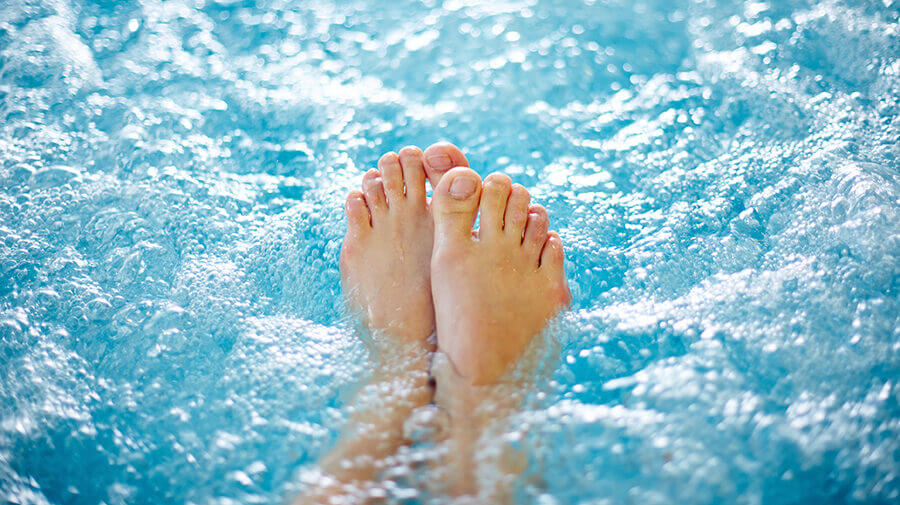The world doesn't run at maximum effort 100% of the time and neither should your freelance business. Do yourself and your clients a favor and take a break!

When you’re not surrounded and supported by the right people, the culture of side hustles, entrepreneurship, freelancing, and business ownership can become unhealthy and even toxic.
You started a business because you’re great at what you do and realized that with your passion and skills, you have the ability to positively impact other people. But the deeper you get into the world of entrepreneurship, the more it becomes about the hustle and who is…
- Putting in the most hours
- Working the hardest
- Getting up the earliest
- Achieveing the greatest productivity
- Growing the fastest
- Hiring more people
- Making the most money
- Launching the next “big thing”
You’re bombarded with messages stating if you’re not pushing and grinding and working hard all of the time, you’re not doing it right, you’re not good enough, you don’t want it bad enough, and you won’t succeed.
So-called experts constantly tell you to embrace the grind, hustle harder, get up earlier, work while everyone else is sleeping, and do more, achieve more, launch more, grow more. You are bullied into believing that if you just put in that extra hour, work on Saturday, or push just a little harder, you’ll magically find the success you’re looking for.
It’s not healthy.
And pushing until you’re about to break isn’t smart.
Breaks Make The World Go ‘Round
Breaks, on the other hand, are a natural healthy part of living your best life.
The world doesn’t operate at 100% capacity or at maximum effort 100% of the time. Instead, it ebbs and flows, it pushes forward then recedes, it works then rests.
- Musicians take breaks between songs, schedule a set break during concerts, and take breaks between shows.
- Schools take breaks between classes, a longer break at lunch, breaks at night to recharge before the next day, breaks over the weekend, and a summer break.
- Theater productions work hard during practice to ramp up before a show run, they peak during the delivery of the show, taking breaks between each performance, and then rest when the show closes.
- Nature embraces the seasons, growing and blooming in the spring, struggling to survive in the summer, dying off in the autumn, and falling dormant in the winter.
- Athletes work hard during their sport’s season, taking breaks between games, then resting during the off-season.
- Interval training and strength training have you working hard then resting.
- Animals forage for food and build up sustenance during the summer and retreat or hibernate during the winter.
- The human heart contracts and releases with every heartbeat. To keep you alive it works and rests repeatedly.
So why do freelancers, and frankly most remote workers who work from home, feel like they can’t take even small breaks?
The big problem with remote work culture is that non-stop back-to-back meetings, jam-packed calendars, 50+ hour workweeks, unrealistic billable targets, productivity sprints, working nights and weekends, and never taking vacations are the accepted norm.
If you’re overworked and don’t take enough breaks, you’ve most likely experienced:
- Sitting in front of your computer for hours on end without taking a break and often skip eating lunch. (Yet office workers take several breaks each day, get up and walk around, talk to others.)
- Feeling guilty when you step away from your business and worrying constantly about all of the tasks on your to-do list until you’re back at your desk.
- Working nights and weekends for weeks, months, and even years on end, and sometimes pulling all-nighters because you’re not delegating low-level tasks.
- Putting off that family vacation because you’re dreading the ramp of of work before and after the trip.
- Telling your kids things like, “Give me five minutes,” and “Let me send this last email,” only to still be sitting at your computer an hour later.
- Trying to turn every slow period into a productive sprint.
- Holding it until you’re in pain, wiggling uncomfortably at your desk, and about to pee your pants just to get one more thing done… No? Just me?
Yuck! Trust me when I say that is no way to live or work. When I didn’t know any better, that was my reality and it drove me to a near breakdown.
What I came to learn over time is that breaks are a necessary part of life and they help you reach your goals without sacrificing your health. Downtime away from your office, computer, and work tasks, is critical for productivity, creativity, energy levels, happiness, problem-solving capabilities, and mental health.
Embracing your most productive time of day almost makes a big different in how you feel about your work and much you can actually get done.
I realized that the more breaks and vacations I took — an evening of no work talk, a weekend away from the office, or a full family vacation or road trip — the happier I was with my work and the more money I made. As a result, my quality of work improved, the speed at which I work improved, and my clients were happier because they were always getting the best, most strategic and creative version of me.
This is why I now step away from my business more than nine weeks every year and almost never work nights or weekends — sometimes I do to work on my own stuff and advance my personal goals.
When you don’t plan your schedule to allows for breaks, it diminishes the quality of work you can produce and negatively affects your ability to focus and think strategically, which leads to mistakes that sabotage projects and profits. It also jeopardizes your health and the life you are working to create.
Working during breaks — listening to business podcasts, attending webinars, watching business videos, checking email, and scrolling through business-related social media groups — doesn’t give your brain a chance to rest, recharge, and refuel. It actually damages your brainpower!
Working constantly and never giving yourself real time to rest also means you sacrifice time with family and friends, fun hobbies, and the joy that comes from making unforgettable memories and living your best life.
So next time you hit a creative block, you’re just not feeling it and can’t quite find that productive groove, or you feel yourself getting burned out, take a break and feel great about it! It means you’re doing what’s best for you and your clients.
And, if you need a little help, check out my Proactive Productivity Mini Course where I share all of my best productivity strategies, tips, tools, and tactics.
